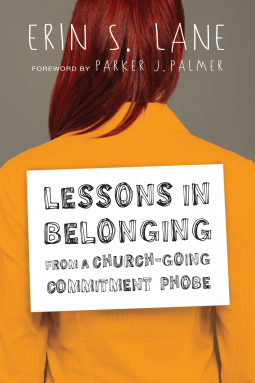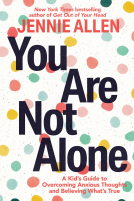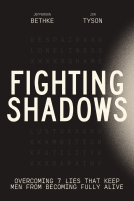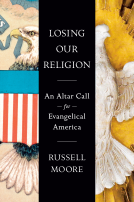
Lessons in Belonging from a Church-Going Commitment Phobe
by Erin S. Lane
This title was previously available on NetGalley and is now archived.
Send NetGalley books directly to your Kindle or Kindle app
1
To read on a Kindle or Kindle app, please add kindle@netgalley.com as an approved email address to receive files in your Amazon account. Click here for step-by-step instructions.
2
Also find your Kindle email address within your Amazon account, and enter it here.
Pub Date Jan 28 2015 | Archive Date Jun 08 2016
InterVarsity Press | IVP Books
Description
Advance Praise
-Phyllis Tickle, author of The Great Emergence
"'I don't think I've ever looked forward to going to church for the people.' You have to love a book that makes this declaration. Erin Lane tells a good story about her curious condition as an incurable introvert who nonetheless loves the church--and is married to a pastor to boot. Part church history, part spiritual memoir, part theological treatise on Christian community, Lessons in Belonging suggests how we might shed 'illusions of how belonging should happen.' . . .
"Lane wants to help millennials and those who love them to understand the real countercultural impulse of the church: the permission it gives--indeed, the command it speaks--to 'start from the ground of our true being, a humanity fragile and flawed and dusty from the wrestling.' This message ought to be a refreshing one, especially for the hard-charging generation to which Lane belongs. But it also offers relief and rest and rescue to all churchgoers who long for more, regardless of how we label ourselves."
-Anne Blue Wills, Christian Century, December 23, 2015
Available Editions
| EDITION | Paperback |
| ISBN | 9780830843176 |
| PRICE | $16.00 (USD) |
Average rating from 9 members
Featured Reviews
More than a decade of Catholic school failed to cultivate anything but atheism in me. I love a good memoir though, and the cover of Erin Lane’s book intrigued me when I received a free copy in exchange for an honest review. As I glanced over the table of contents and skimmed the foreword, I thought to myself “What was I thinking? I’m not even religious! I’m not going to be able to read this book.”
I’m slightly surprised to report that I really enjoyed it! I read the entire thing on one of those lazy rainy days when leaving the couch seems like an impossibility. It is a book about religion. Mostly, however, it’s one woman’s story of her own quest to find a place to belong within the world of her faith. She never struggles with her belief in God but questions how it fits within tangible day to day life among other believers. Reflections on Christianity and biblical verses are seamlessly integrated with tales of the places she’s lived, communities she’s a part of, and her marriage and family.
Lane very nearly manages to never come across as preachy thanks to her willingness to expose her own quirks and flaws. She has a hard time committing to the idea of weekly attendance at church. On this she says “I believe in being the church. I believe in attending a church. I just don’t like to do it.” Her feminist views also infuse a bit of humor, such as when she mentions changing all the he’s to her’s and the Father’s to Mother’s while singing hymns “in order to enact a dose of liturgical affirmative action on behalf of the female sex.”
If I had to offer one criticism, and it’s a very small one, it would be that the timeline is challenging to follow. It’s sometimes unclear whether something she describes happened in the past, perhaps when she was living in a different city, or more recently. This ultimately has very little impact on the narrative because her stories aren’t dependent on a sense of time or place.
I think you may need to have some interest in or history of experience with religion to really appreciate this book, because a substantial part of it is an exploration of faith. I never felt like the author was trying to convert the reader or push her viewpoint, however, and I found this book smart, beautifully written, and immensely enjoyable.
 Conrade Y, Reviewer
Conrade Y, Reviewer
Far too often, when we talk about young people and the Church, it seems like strange bedfellows where there are often more suspicions than trust. Sometimes we have cross accusations where the old would claim the young are uninterested while the young say the old are too archaic in their ways. It is easy to criticize the Church. In fact, people of all ages can say negative things about the Church. Yet, the truth is, we need one another. We need both the young, the old, and everyone else in between. In one word, this book is about "belonging." While that is the key point, what makes it most interesting is the way the author writes counter-culturally. She gives a refreshing perspective from the mindset of a Millennial. For instance, instead of seeing "disillusionment" as something chronically negative, how about seeing it in terms of a good thing, like having an opportunity to be free from our personal illusions? Not only can it free us from the castle of self, it enables us to reflect on what role we ought to play with regard to being a part of a community. Rather than pinning the blame on something less controllable, like the Church and how she should behave, it places the responsibility back on the individual. How do we trust people? What can we do to be a part of the enduring community? It is a call not only to accept messy living but to participate in a community no matter how messy it is.
Erin Lane works with popular author and spiritual writer, Parker Palmer at the Center for Courage and Renewal. Writing from the perspective of a Millennial, she is passionate about building bridges for people to belong. Her blog can be found here. In this book, Lane tries to do two things. She tells about what people ought to be doing in terms of their responsibilities. At the same time, she highlights what responses people could adopt in the light of the realities and pain of community living. She then goes on to give readers six lessons on how to do these.
First, belonging is about being earnest. It means we should be honest about our desires, like wanting to belong but needing help. As belonging is a life-long endeavour, one needs a way to persevere, a passion to continue the long journey to community. This requires a conviction that community and belonging is a birth-right; something to earnestly preserve and persevere toward. She looks at her own generation and confesses that many of them are stuck in the pursuit of money and success; sex and rules. Lane admits she begins with the position of commitment. Yet, she prefers to refrain from judging people for "church shopping" but to see the efforts as "church dating." The difference is that the latter makes Church a whole lot more enjoyable.
Second, belonging is about being gracious and charitable. Like how the author receives gracious support from her pastor to visit another Church. Reflecting on her learning from Tim Keller's book about marriage, she muses about how people want too much from Church and not enough from it. She also wonders about the lack of a female voice in that very same book, written primarily with Tim's views on marriage. Perhaps, the things said in the book can be taken at a half-truth position, for the rest of it requires a dosage of generous applications and charitable hearts. With meandering about marriage and the wonder about the imperfections of relationships, Lane reflects on the importance of "wonder" especially when things in life appear to be going south.
Third, belonging means showing up as said. It is a mark of commitment. In our modern society, it is easy to promise something and conveniently not do it. She offers her thoughts about Church, the frequency of the Holy Eucharist, initiation into Church, and other sacraments like Baptism. As one who needs rhythm in life, rather than to have haphazard schedules and random activities, it allows for intentionality and for regular pondering over the need for newer rhythms at various points of life. I really liked her observations about indifference, if we do not have some regular schedule in our lives. Quoting Pope Francis, this "globalization of indifference" is:
"The culture of comfort, which makes us think only of ourselves, makes us insensitive to the cries of other people, makes us live in soap bubbles which, however lovely, are insubstantial; they offer a fleeting and empty illusion which results in indifference to others."
I loved that. We are free to spend our time whichever way we want, but it takes a spiritually attuned person to learn to spend it in a way that demonstrates commitment to the good of humanity and our community.
Four, belonging requires us to be vulnerable about ourselves. If we want to grow the relationship, there is no escaping being open about us. It means putting our names down to be counted and recognized. It means learning to limp along with others and letting others do the same with us. It means interdependence. It is easy to try to connect with one another with our heads. If we want to connect with our hearts, there is no leaving our vulnerabilities out. Vulnerability is a gift of selves for others to connect with us. It means sharing needs, burdens, and the whole list of personal things. Lane shares about her parents' divorce
Five, belonging requires discernment of ourselves too. After laying out the importance of us knowing about our true selves, we can then learn how much of a gift we can be for others. It is not about showing off of ourselves or our talents, but to discern our uniqueness in God, that we can learn how we can benefit others in the community in our efforts to belong. Put it another way, how can we learn to value others if we do not first learn how to value ourselves? It is at the edge of our personal discernment and the ones we are relating to, that both parties are softened and transformed.
Finally, belonging needs the willing offering of ourselves, our gifts, and our resources. Coming back to the importance of Church and the critical roles that we play, Lane reminds us that the Church should be a reminder to us that we need the Church, and not the other way round. It is a profound reversal of the conventional understanding that the Church needs people. While truth is the main thing thirty years ago, experience and feeling authentic has taken over the limelight. While one is not downplaying the importance of truth, the main thing is to look at ways to use the cry for authenticity as a gateway to the discovery of truth.
So What?
Let me offer three thoughts about this book.
Firstly, it is a book about commitment and Church. I believe Lane has done all of us a great service by showing us that our starting point toward Church is not "Why?" but "Why not?" The Church is essentially the people of God. Without people, there is no Church, no matter how classy and awesome the bricks and steeples look. With commitment, we have a pool of individuals who would come together through thick and thin, united under the common umbrella of faith in Jesus, the foundation of the Rock in Christ. Commitment is something not popular these days. In an experiential culture, people tend to commit only when they feel like it. While many people may think that the Millennials are not as committed as the previous generation, Lane shows us that there are Millennials who are committed, if not more, than generations before. So, it is important not to generalize. I think Lane has helped reiterate the importance of the lost art of commitment. This is perhaps one of the biggest take-aways for me when I read this book.
Secondly, this book is about community. In order to build community, Lane shows us six pathways toward cultivating that. It is not the scientific manner but the way Lane expresses her thoughts that make this book a refreshing one. I feel that Lane has done it gently and effectively by sharing her thoughts in a non-judgmental manner. By doing so, she invites the reader in to make decisions for themselves. Rather than merely telling readers what they should or not do, she demonstrates what she had done or would have done. Such a posture can often help one put down any guard and to let the author come alongside as guide by the side, rather than a sage on the stage.
Third, this book is about belonging. The lessons learned can be applied not only to Church but also for personal relationships. Relationships must always be open-ended where one is free to stay and also free to leave. Just like a person who loves a bird. It is not about tying the bird to our hands and claim that the bird and us are together as one. Try untying the string or rope and if the bird is unwilling to stay, the bird will fly off. Like any relationships, we can try to cage a person but we can never win that person's heart. Only in a committed relationship, especially in a home where one truly belongs, will there be a willingness to stay in spite of opportunities to leave. That is the power of belonging.
Great lesson.
Rating: 4.75 stars of 5.
conrade This book is provided to me courtesy of Inter-Varsity Press and NetGalley in exchange for an honest review. All opinions offered above are mine unless otherwise stated or implied.
 Lindsey S, Reviewer
Lindsey S, Reviewer
Erin Lane is probably the poster girl for going to church. Her husband is a pastor and she recently graduated from seminary. But she finds it surprisingly difficult to fit in at a church. Her knowledge of theology makes her bristle in the face of ignorance about church practices, and she is decidedly uncomfortable with platitudes and superficial social interactions. In Lessons In Belonging, Lane tries to find out if there is a place in the church for a smart feminist troublemaker with a penchant for asking lots of questions.
There are an abundance of spiritual memoirs from people in their 20s and 30s who feel that it is difficult to belong in the churches of their childhood. It's so much easier to just leave when someone lets you down or hurts you. But Lane discovers that disillusionment is the first step in belonging. Just like any other relationship, being a part of a church means being vulnerable, truthful, and willing to pick your battles and love in spite of your differences. Lane doesn't pretend to have all of the answers, but her questions will seem very familiar to many people who both love the church and feel like they sometimes don't belong there.
Lessons in Belonging From A Church-Going Commitment Phobe
By Erin Lane
IVP Books December 2014
208 pages
Read via Netgalley
 Stacey P, Reviewer
Stacey P, Reviewer
She is honest, yet offers insight that will benefit many individuals. So many of us face what she is talking about. We are church going commitment phobic people who need to know that it is okay, and we can work through this. She talks about the things we need to have a voice to. She talks about belonging. It costs much, but they also has its tremendous rewards. Belonging. The topic we all need to talk about, because it is a craving God has placed in each of us. Belonging is hard, yet necessary.
Readers who liked this book also liked:
Harold Earls, IV; Rachel Earls
Biographies & Memoirs, Parenting, Families, Relationships
Jefferson Bethke; Jon Tyson
Christian, Parenting, Families, Relationships, Religion & Spirituality
















